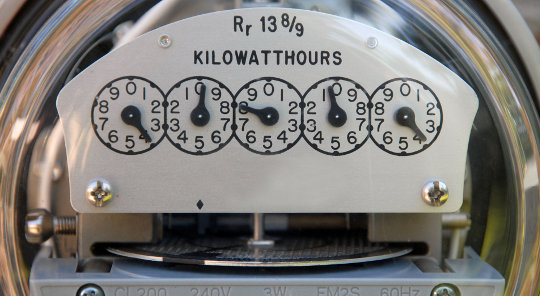Staff

Ontario’s new Long-Term Energy Plan (LTEP) – to be launched in spring/summer of 2017 – will determine the direction for Ontario’s energy future for the next 20 years.
In accordance with the Electricity Act (1998), the Ministry of Energy for Ontario has invited Ontarians to participate in a review of the proposed LTEP and provide their opinions on the province’s long-term energy needs and how to meet them.
As part of the consultation and engagement process, information sessions are currently being held across the province where consumers, distributors, generators, transmitters and other stakeholders are invited to learn more about the new LTEP and voice their opinions.
The Bruce Grey Poverty Task Force (BGPTF) is a network of more than 34 local government and social organizations working together to with key community stakeholders to advocate for the elimination of poverty and to enhance our common understanding of poverty-related issues through solution-based research, knowledge development and information sharing.
The BGPTF has identified the provision of safe and affordable housing as a critical local need. As such, the BGPTF encourages the Government of Ontario to ensure that all discussions related to long-term energy strategies at the provincial planning level include the needs of vulnerable populations and the availability of affordable housing as outlined in the Government of Ontario’s Long-Term Affordable Housing Strategy.
On November 1, BGPTF partner and Executive Director of the United Way Bruce Grey Francesca Dobbyn attended the Barrie consultation on the LTEP and shared local input on how energy plans can be better integrated with provincial planning and to ensure broader community planning and local community needs are taken into account during long-term fuels and electricity planning.
Recommendations for the Ontario government’s Long-Term Energy Plan include:
-
Control escalating utility costs to ensure Ontario maintains a sustainable supply of affordable housing;
-
Ensure greater transparency to inform and educate tenants of the costs associated with utilities when they enter into a new lease (e.g. consumption patterns of previous tenants);
-
Legislate disconnection policies preventing winter disconnects and waiving re-connection fees for low-income populations. While some companies (e.g. Hydro One, Union Gas) have general policies against winter disconnects, others continue to enforce disconnects during the winter, placing vulnerable populations at risk;
-
Investment in additional conversion programs which provide individual households and non-profit housing units access to efficient and affordable heating systems;
-
Entice landlords to upgrade rentals with efficient heating systems through the provision of incentives and home insulation programs;
-
Increase the range and depth of social security benefits to ensure that vulnerable populations have access to safe and affordable housing. For example, 1. Increase rent supplements – or non RGI programs – to provide a broader range of options and opportunities for households in need; 2. Increase the availability of affordable housing stock; 3. Reduce the risk of re-housing by promoting inclusive rental agreements which include utility costs in the monthly rent;
-
Increase engagement with community-based organizations who provide direct support to low-income clients who face eviction or disconnects as a result of being unable to pay utility bills;
-
Increase recognition of agencies that provide services to assist low-income families manage utility usage and bill payment, including the provision of funding for services offered;
-
Examine the role of third party (or ‘re-energy’) providers over concerns that low-income earners and seniors in our community are being taken advantage of;
-
Review the merits of the current delivery fee system against a more equitable flat-fee rate system;
Twenty percent of families in Owen Sound-Georgian Bluffs and 41 percent of lone-parent families earn a median income of only $15,590 – half of Statistic Canada’s Low Income Cut-off for a family of four (Stats Can). Over the past three years, food bank usage across Grey and Bruce Counties has increased by 92 percent, compared to the Canadian average of 26 percent since 2008 (United Way Bruce Grey Hunger Report 2015).
Between 1 July 2015 to 30 June 2016, five local agencies – United Way Bruce Grey, YMCA Housing Services, The Salvation Army Wiarton, Grey County Housing and Bruce County Housing Services – expensed more than $1 million to assist with energy poverty in our region (Utility Needs in Bruce and Grey Counties, United Way Bruce Grey, August 2016).
55.3 percent of those seeking housing assistance in Bruce County are at risk of being homeless (Bruce County Long Term Housing Strategy, 2013-23).
Delivery fees are based on population density. As a result, fees vary greatly within Grey and Bruce Counties. For example, the city of Owen Sound is charged an urban density rate; many small towns fall under ‘medium’ density; and some 30-40% of our catchment area are charged at a more expensive ‘low’ density rate.
Areas falling outside the natural gas shadow face greater risk since they have no alternative to affordable heating sources. Survey results indicate that Getting Ahead program graduates in Grey and Bruce Counties are spending at least 75 percent of their Ontario Works/Ontario Disability Support Program benefits on housing (Adult Learning Centre, 2015).











